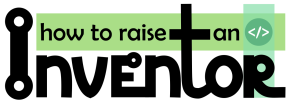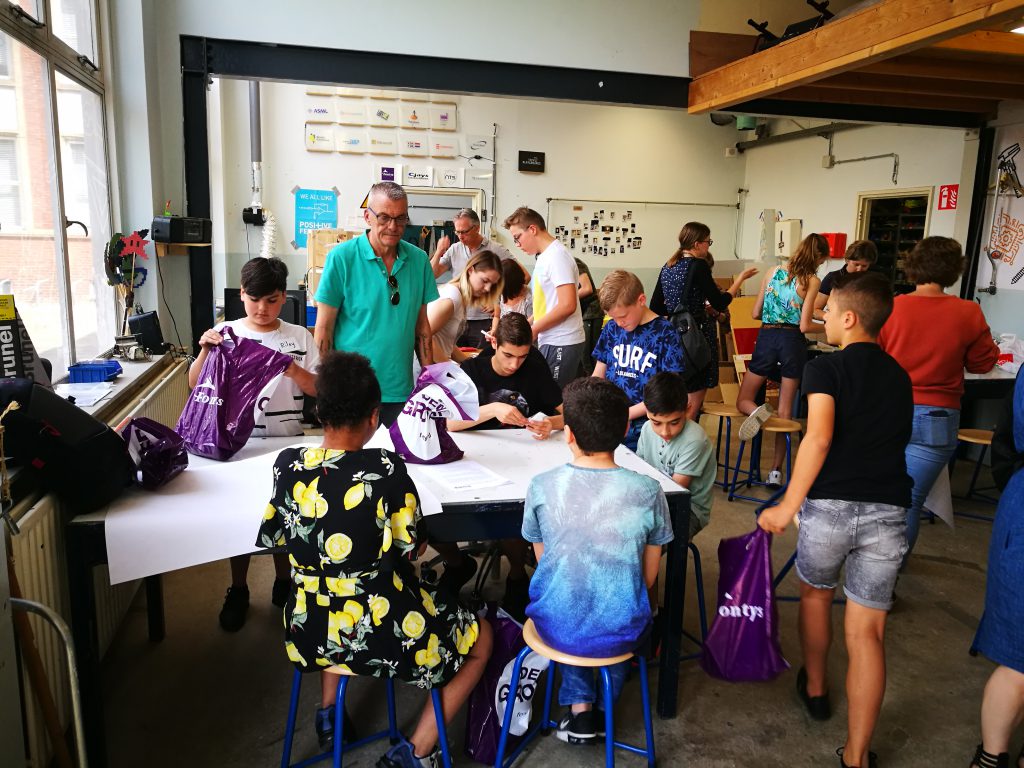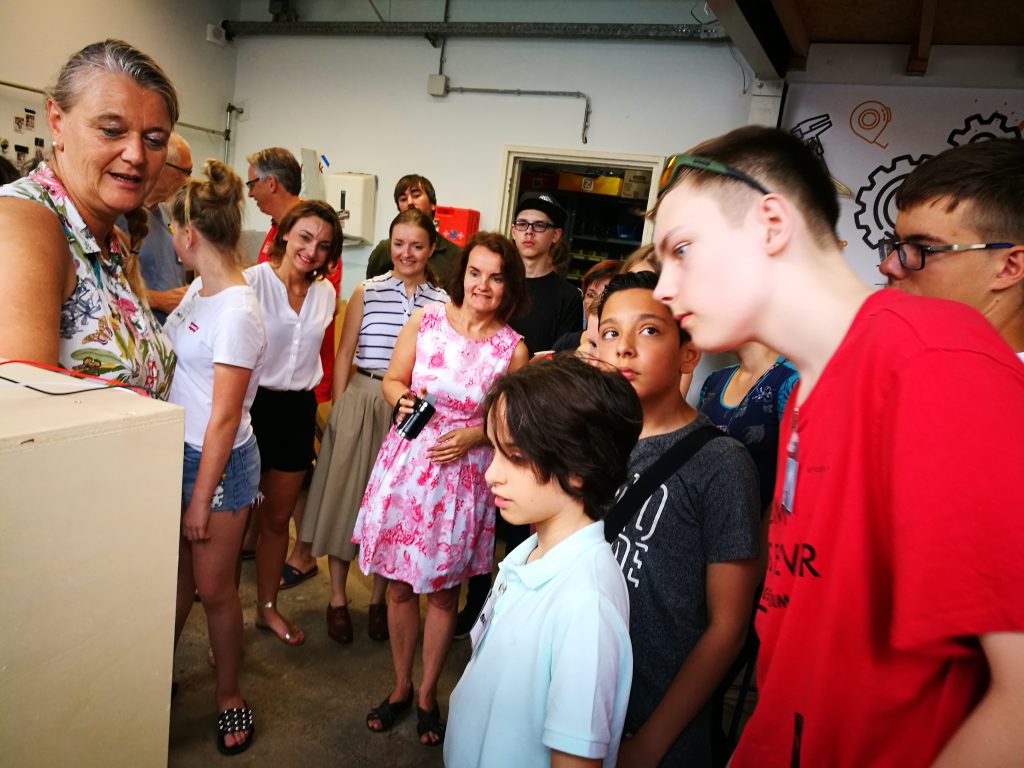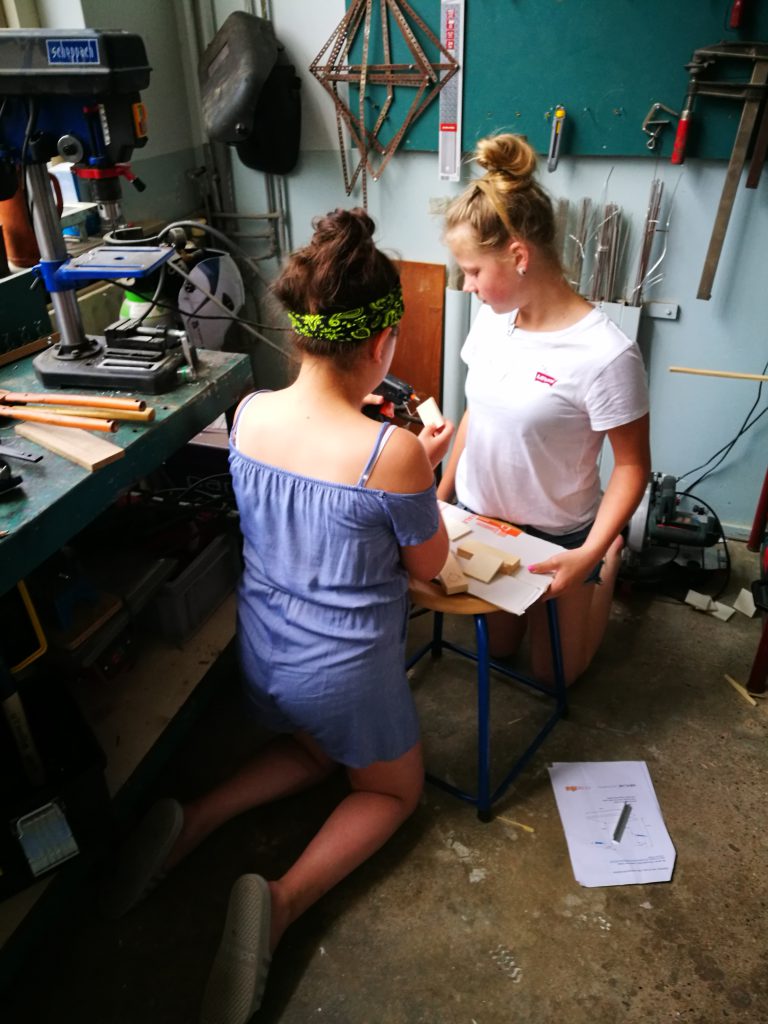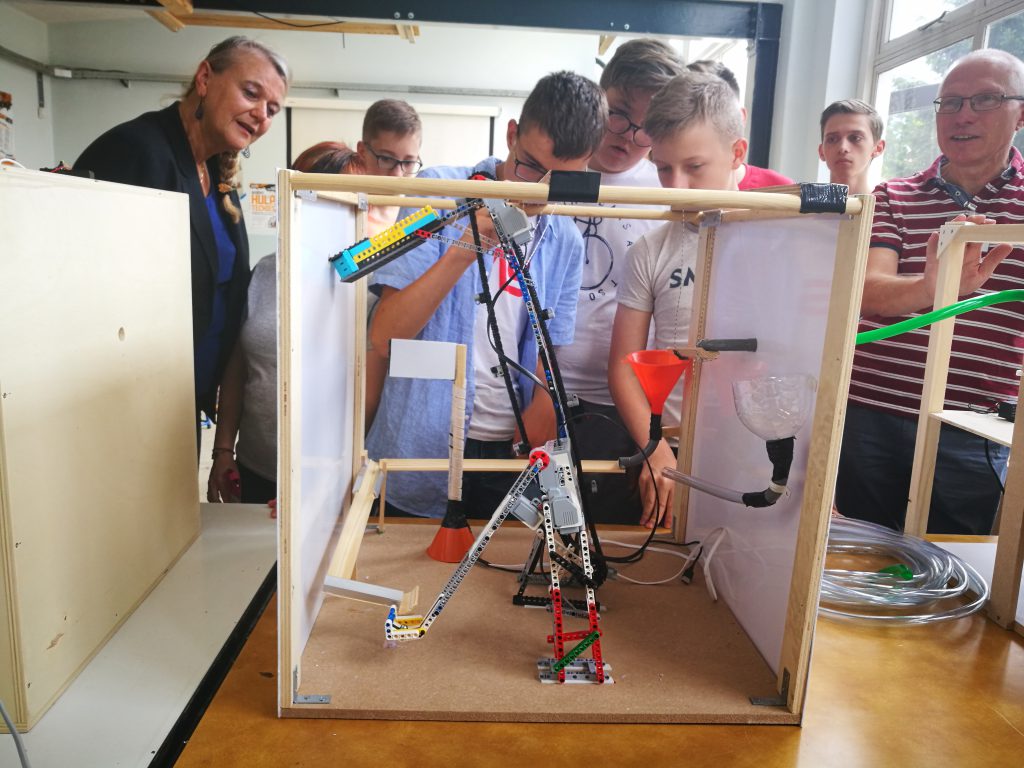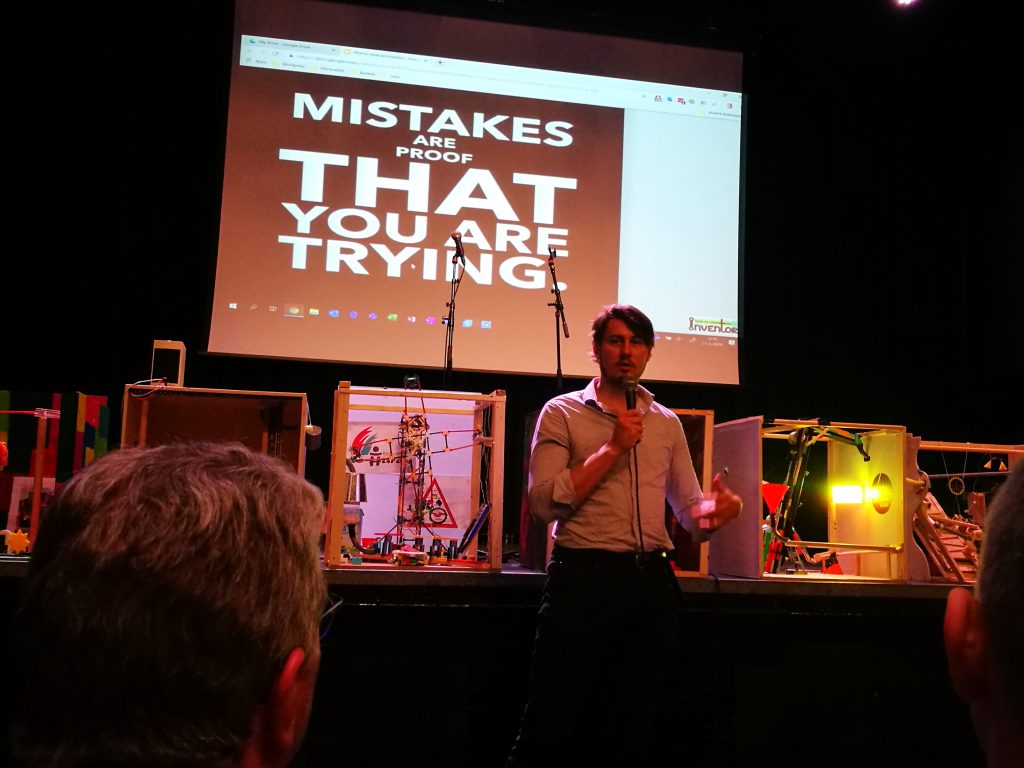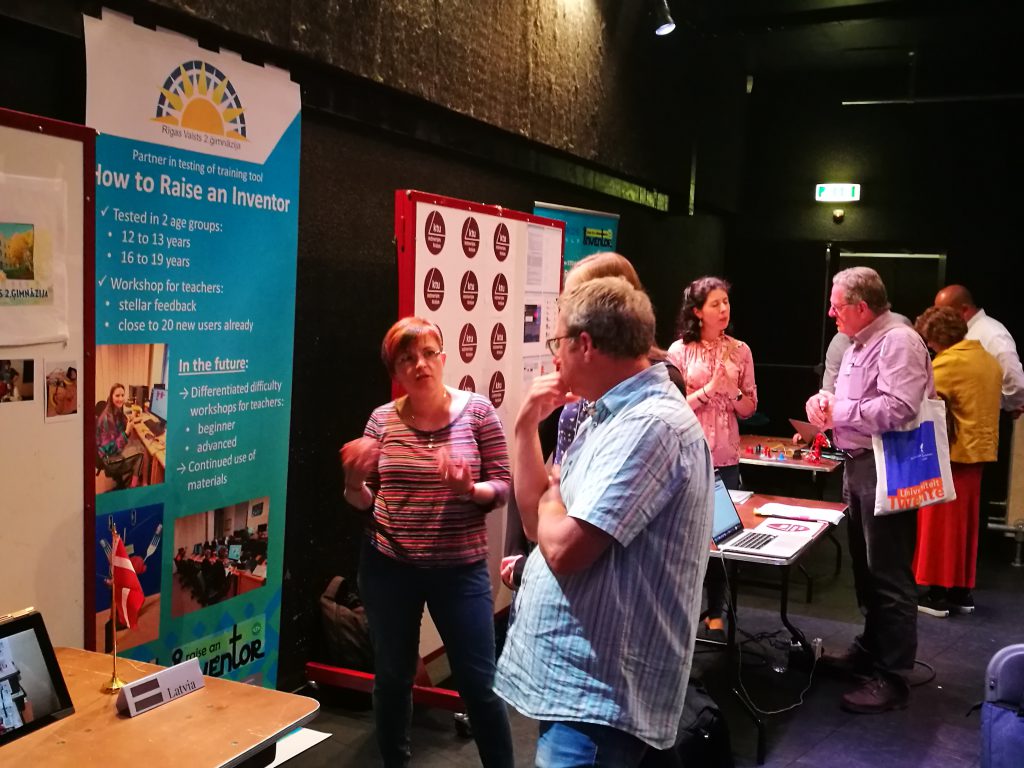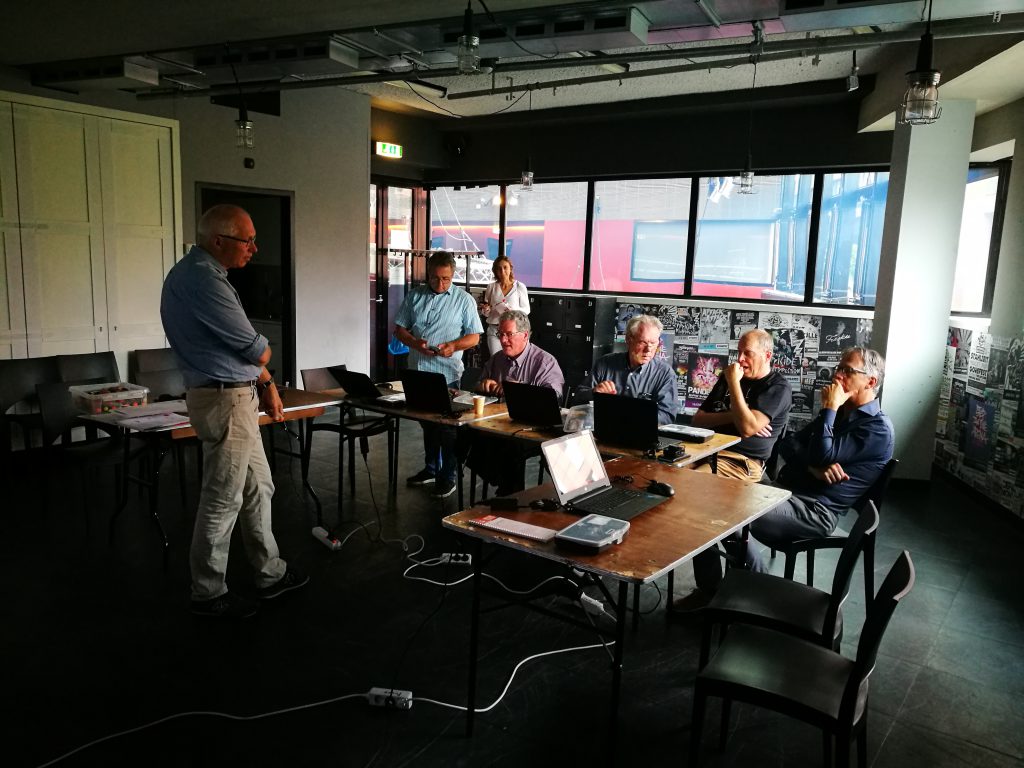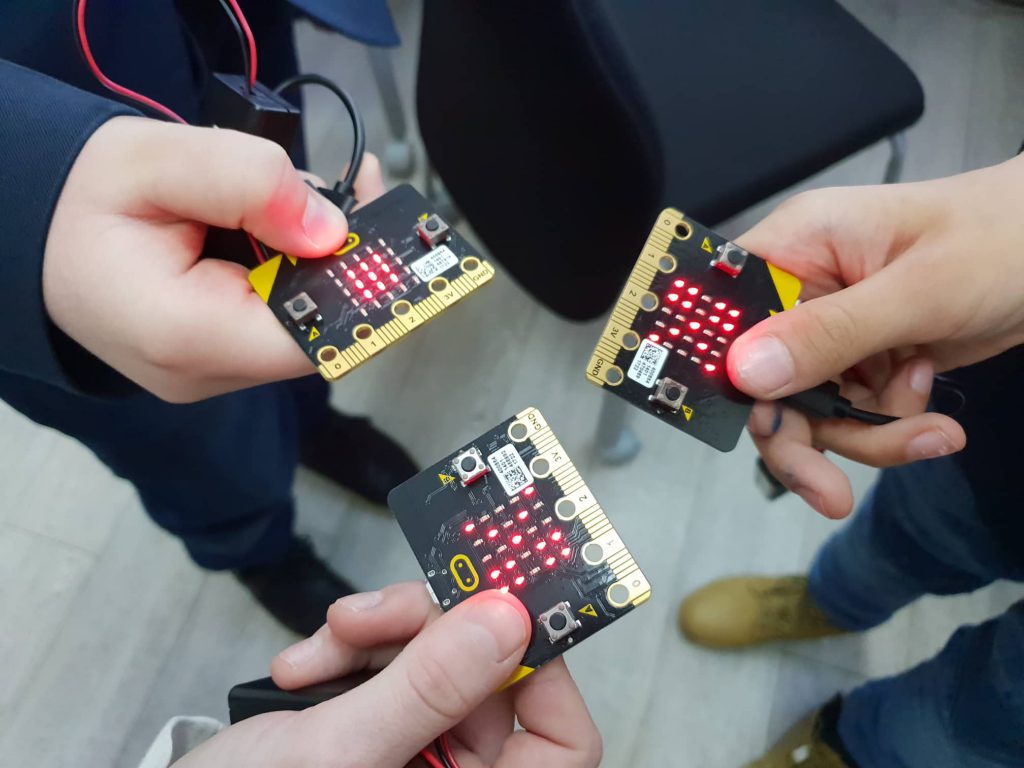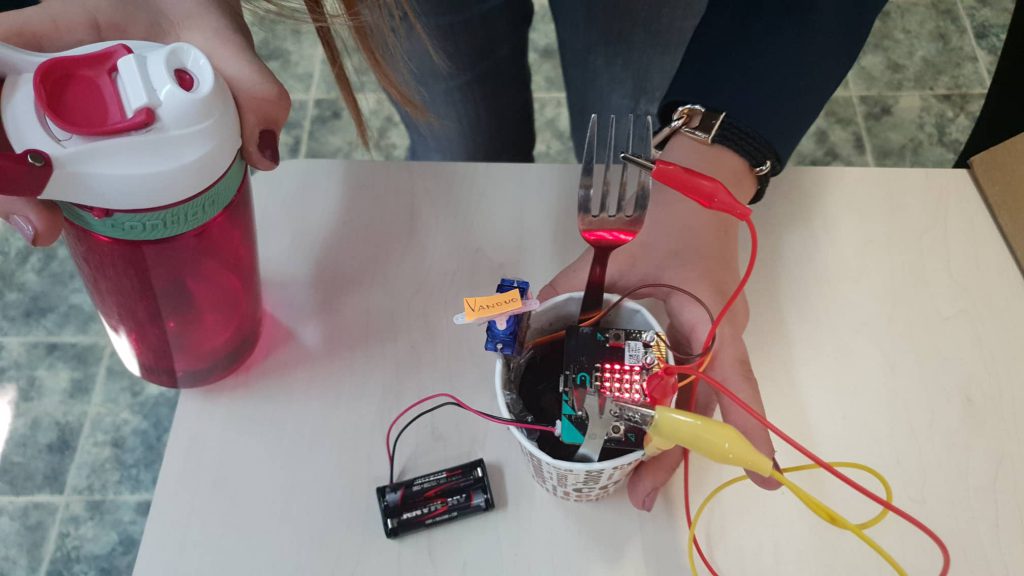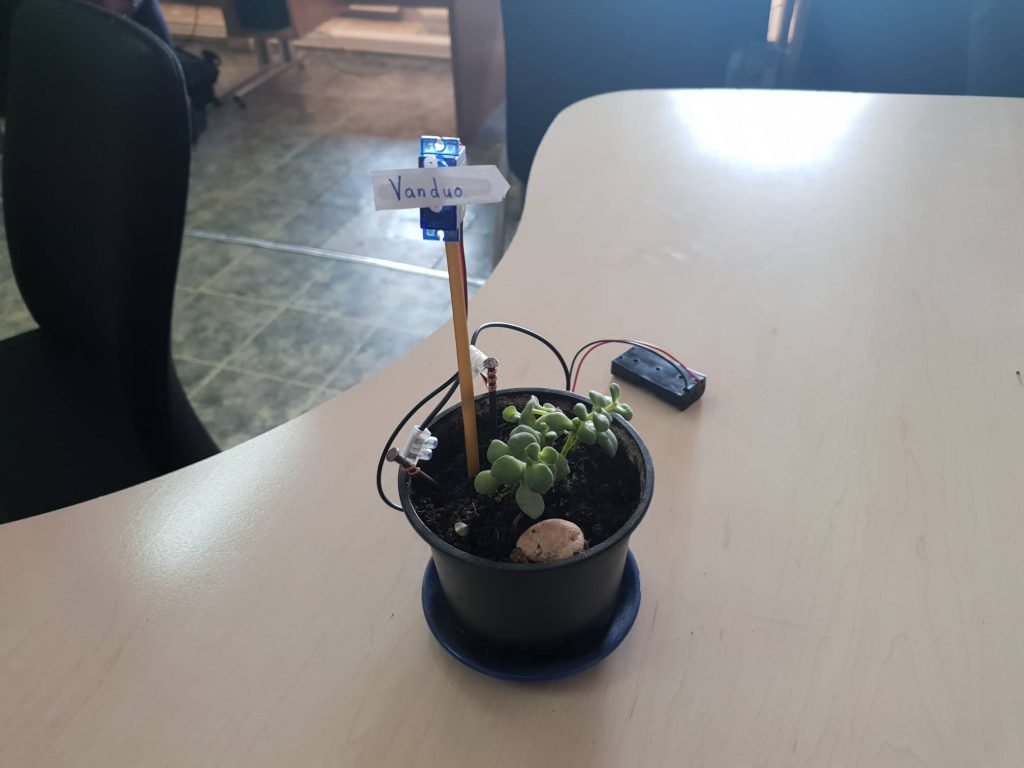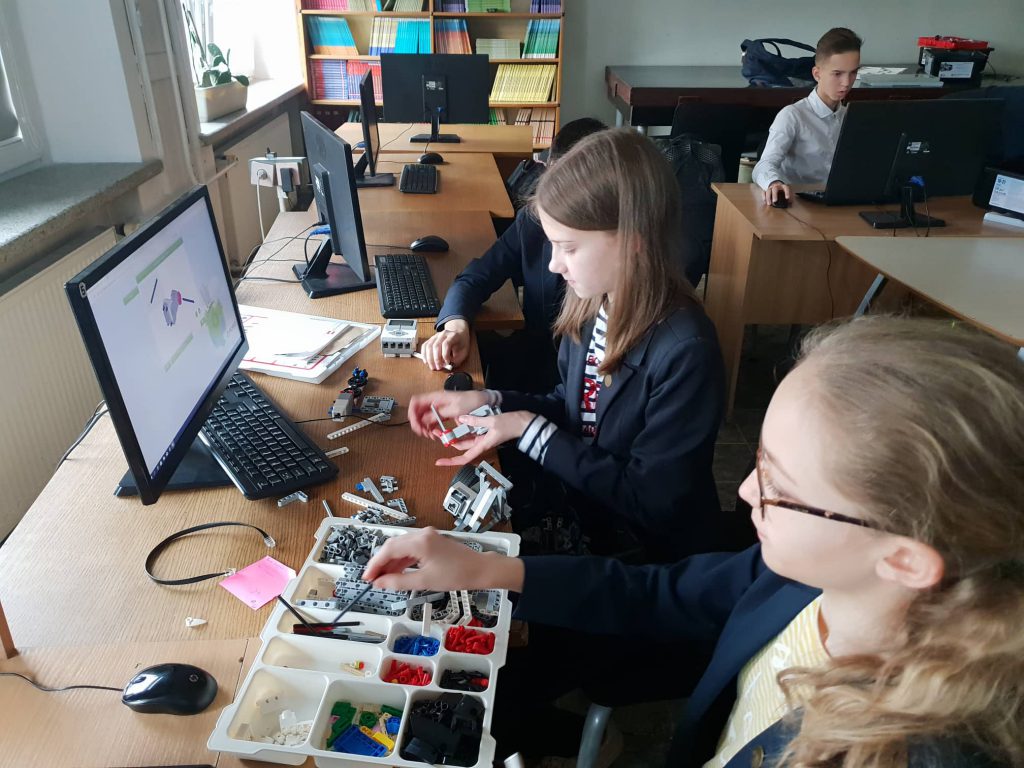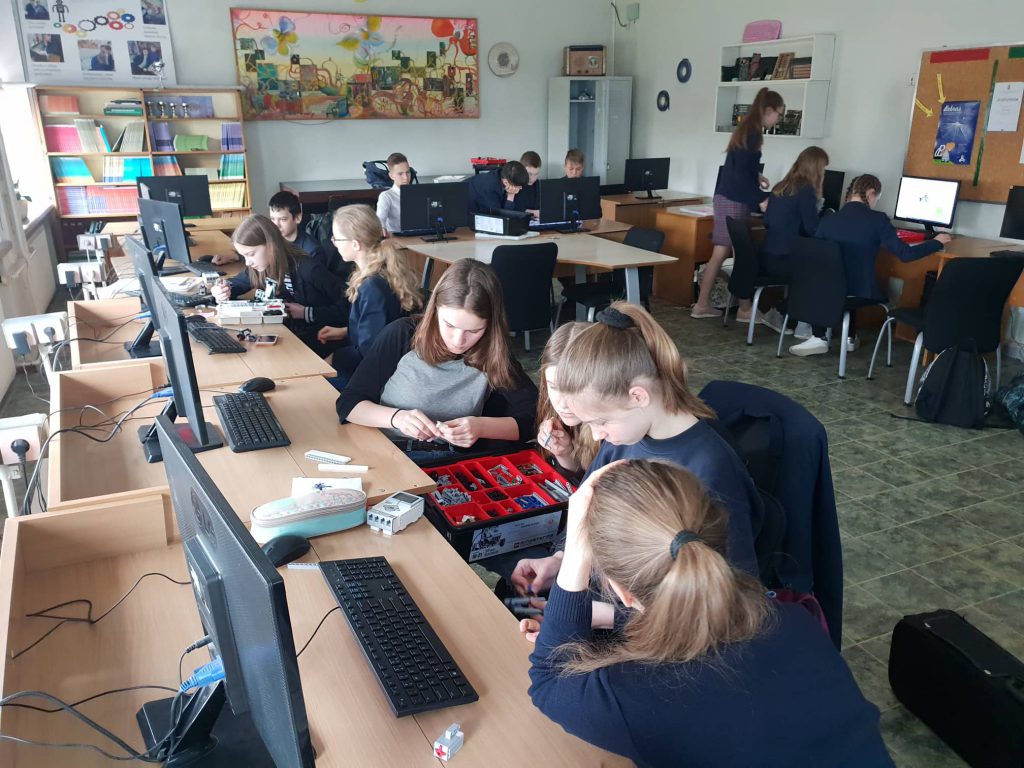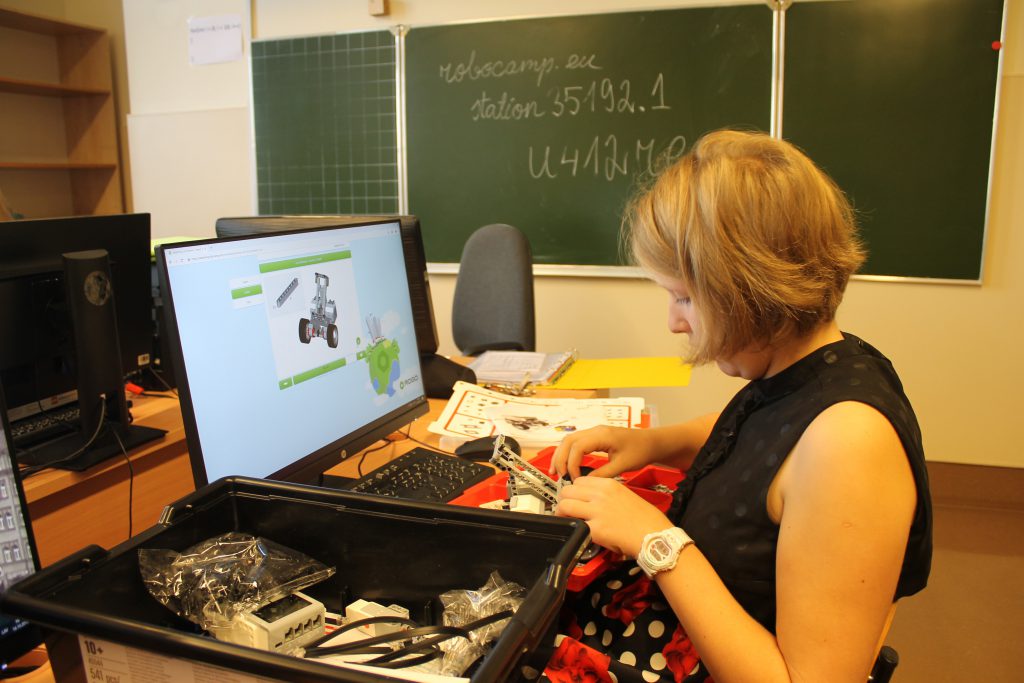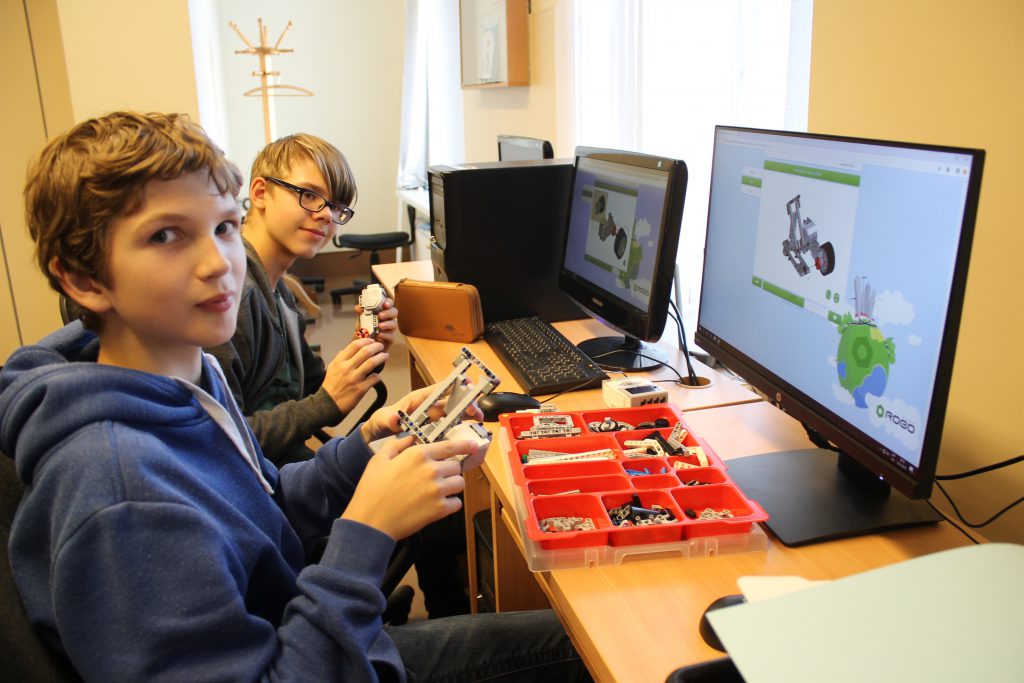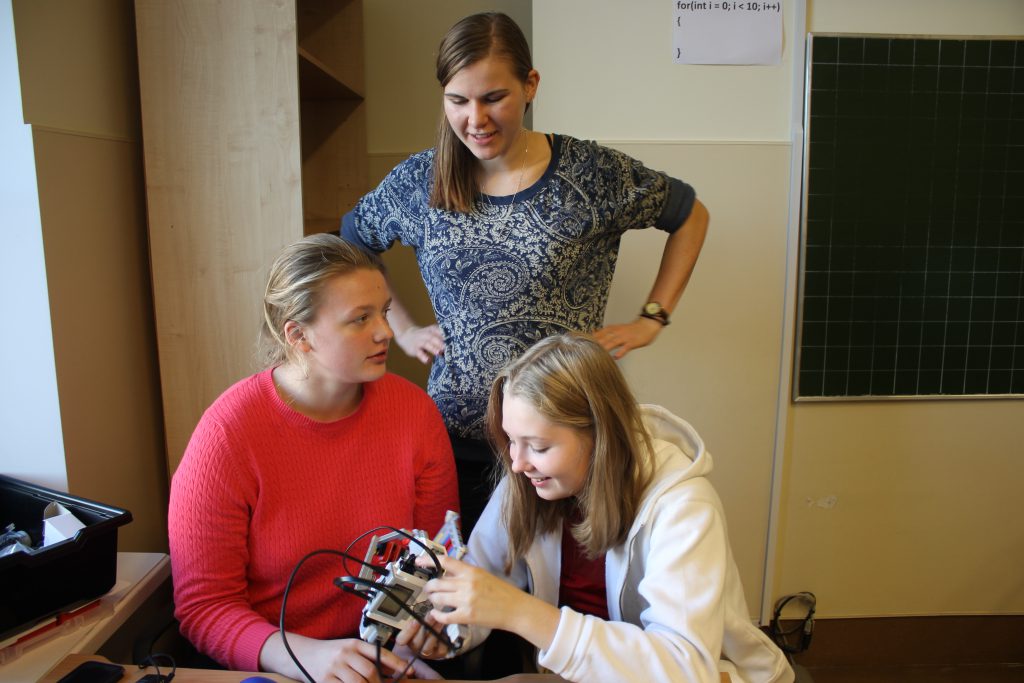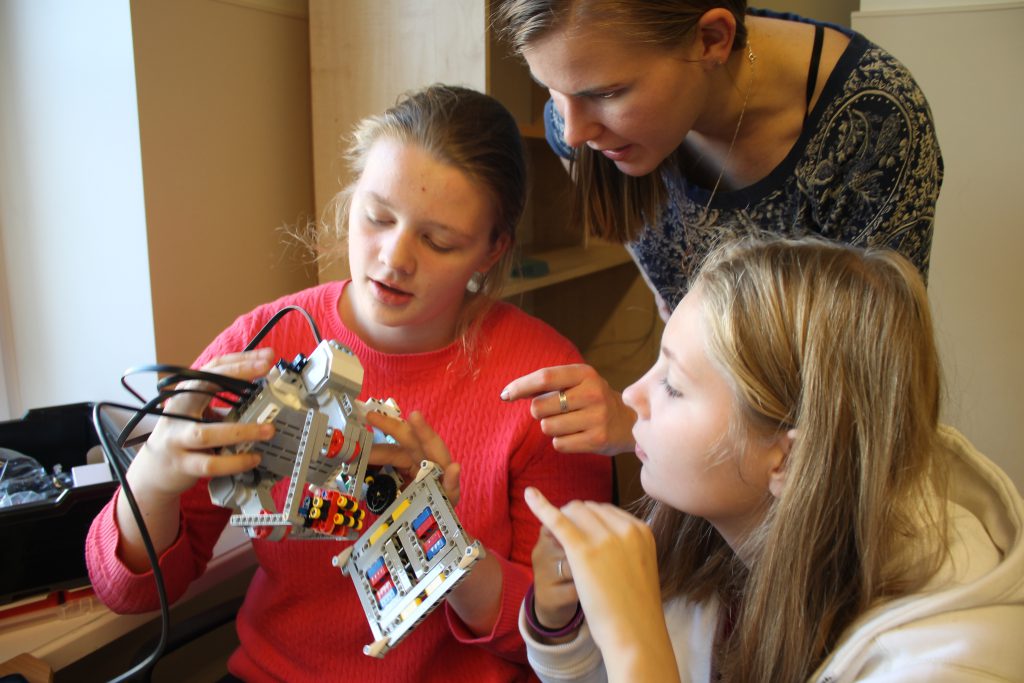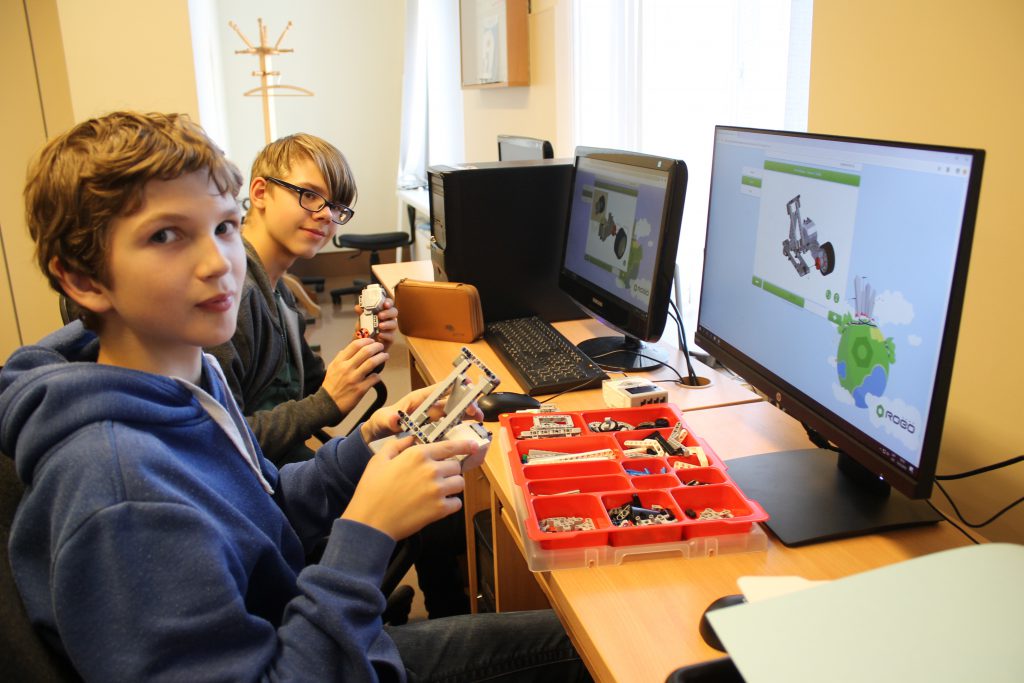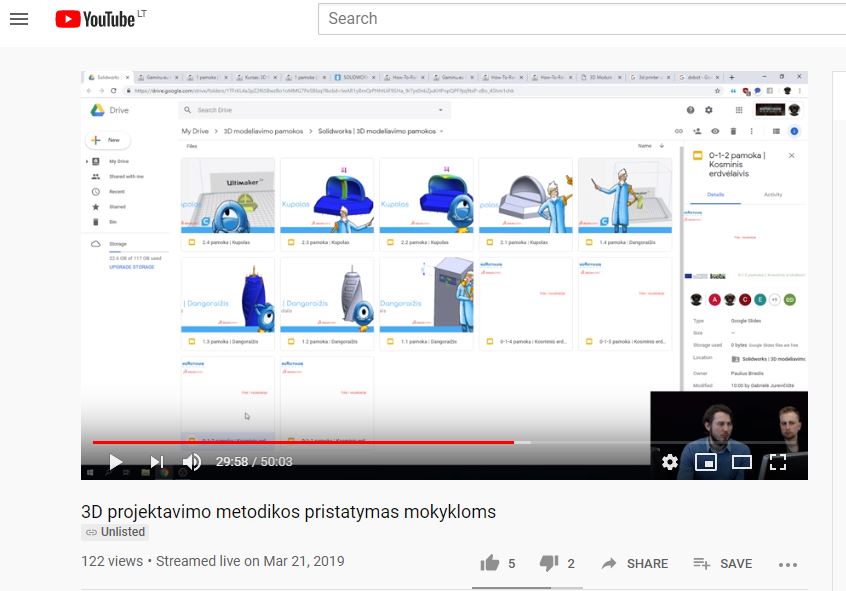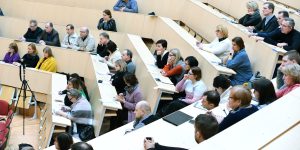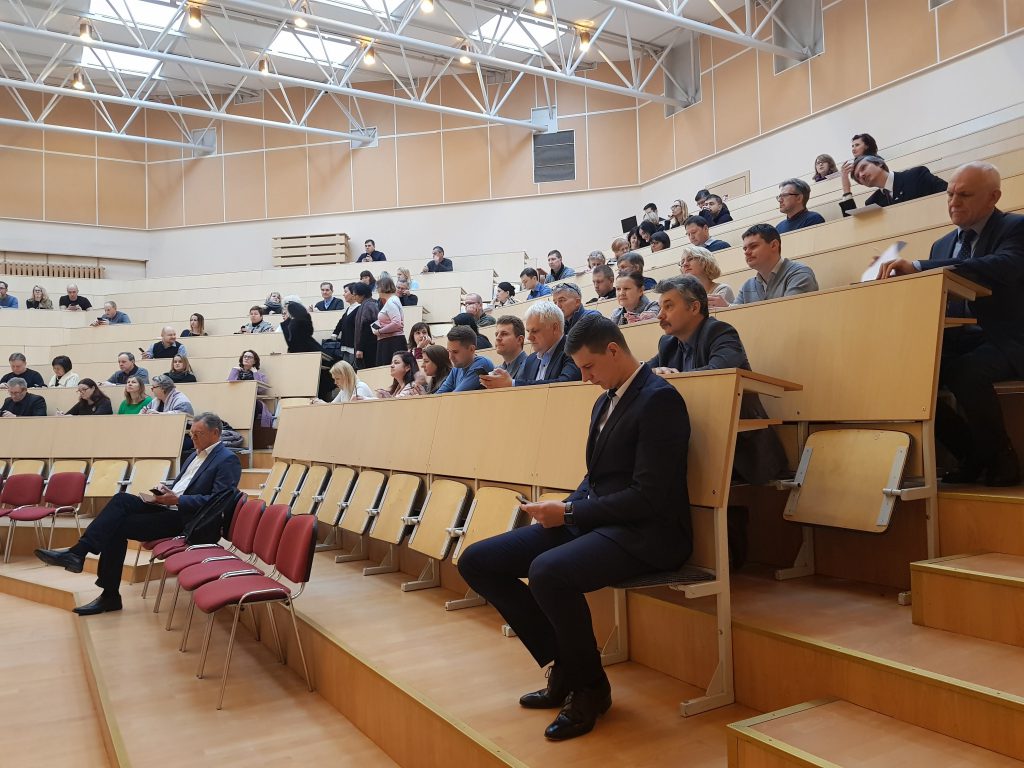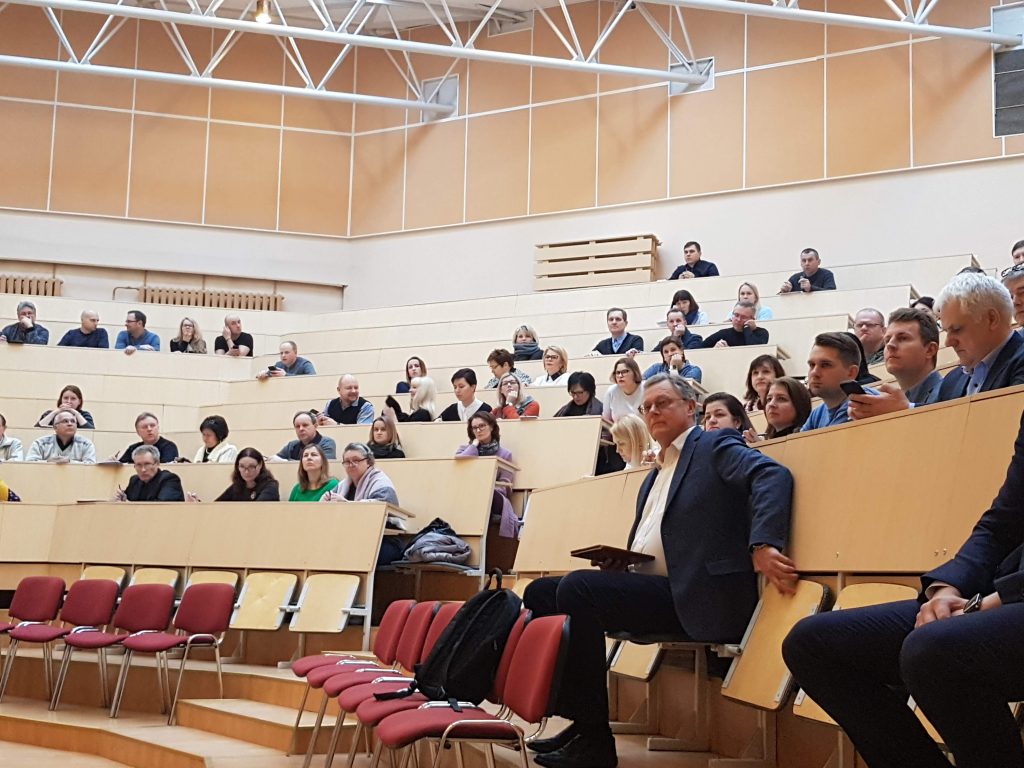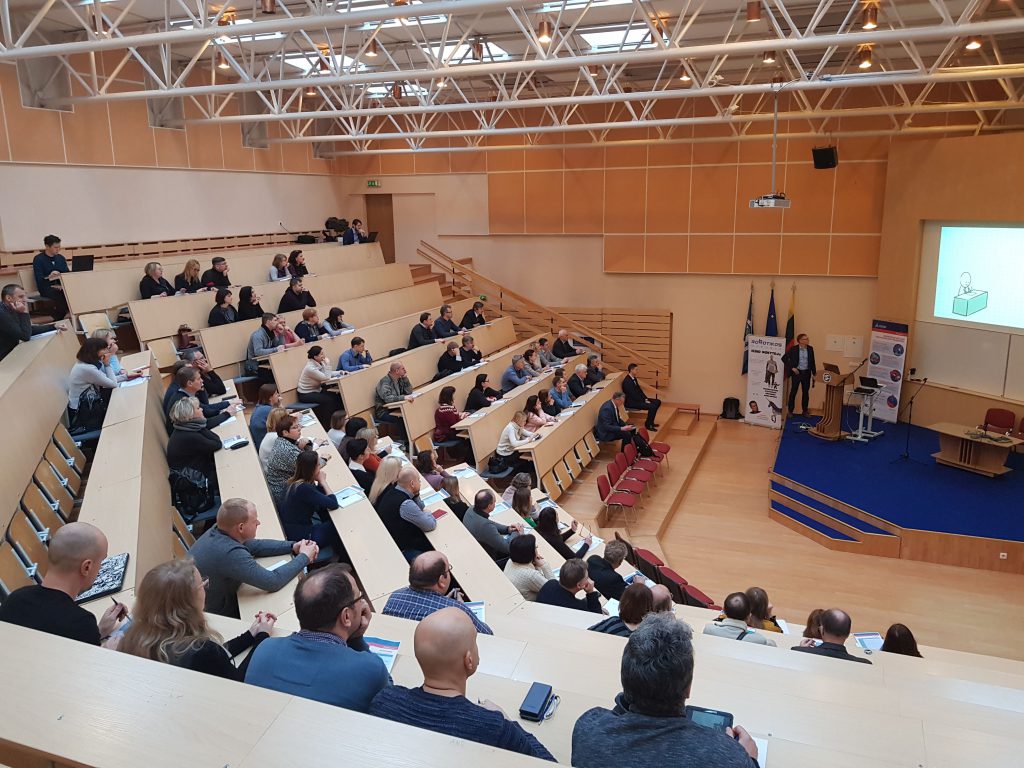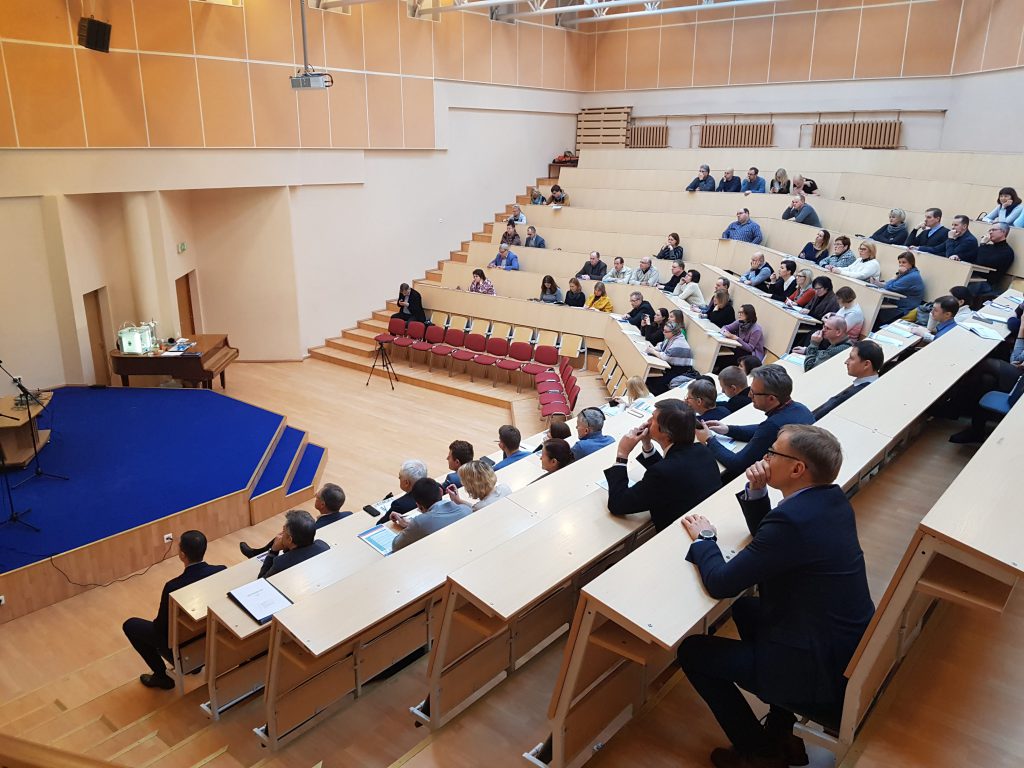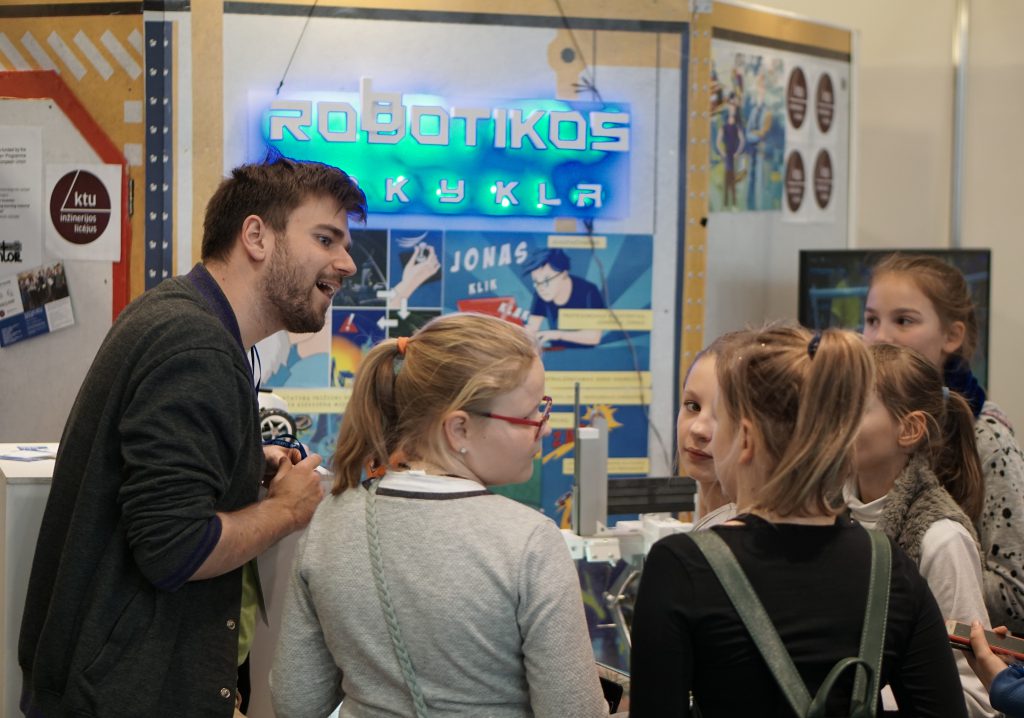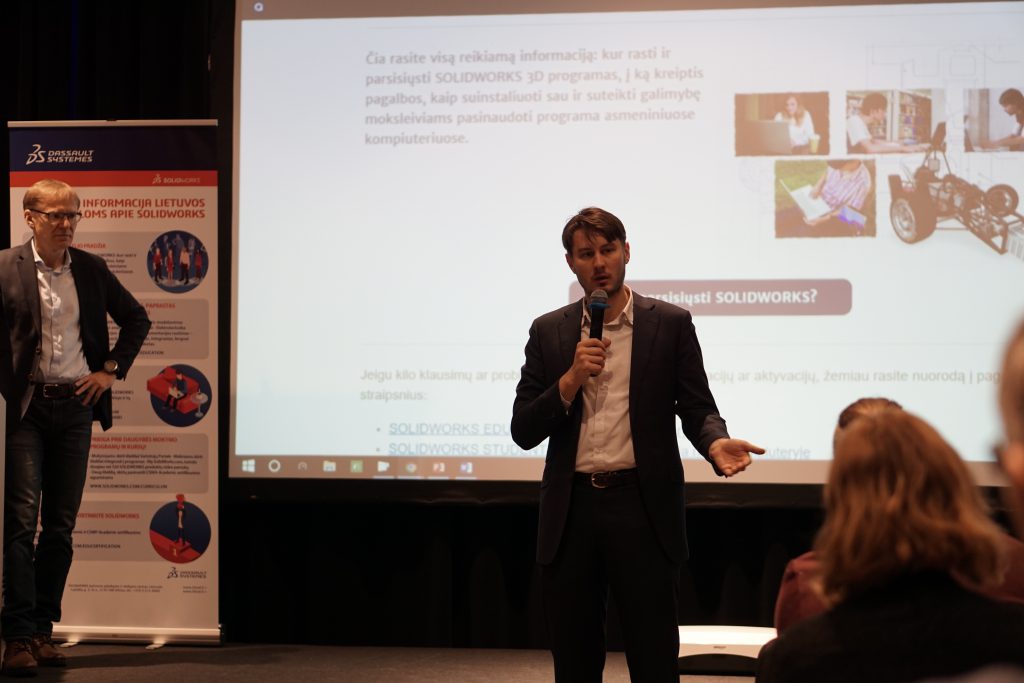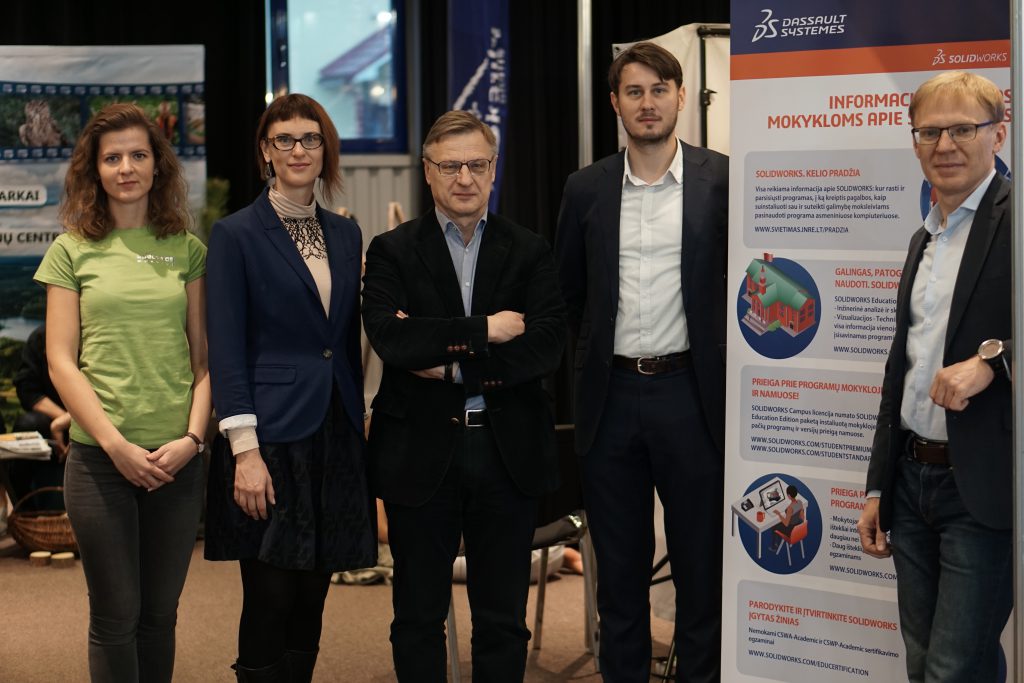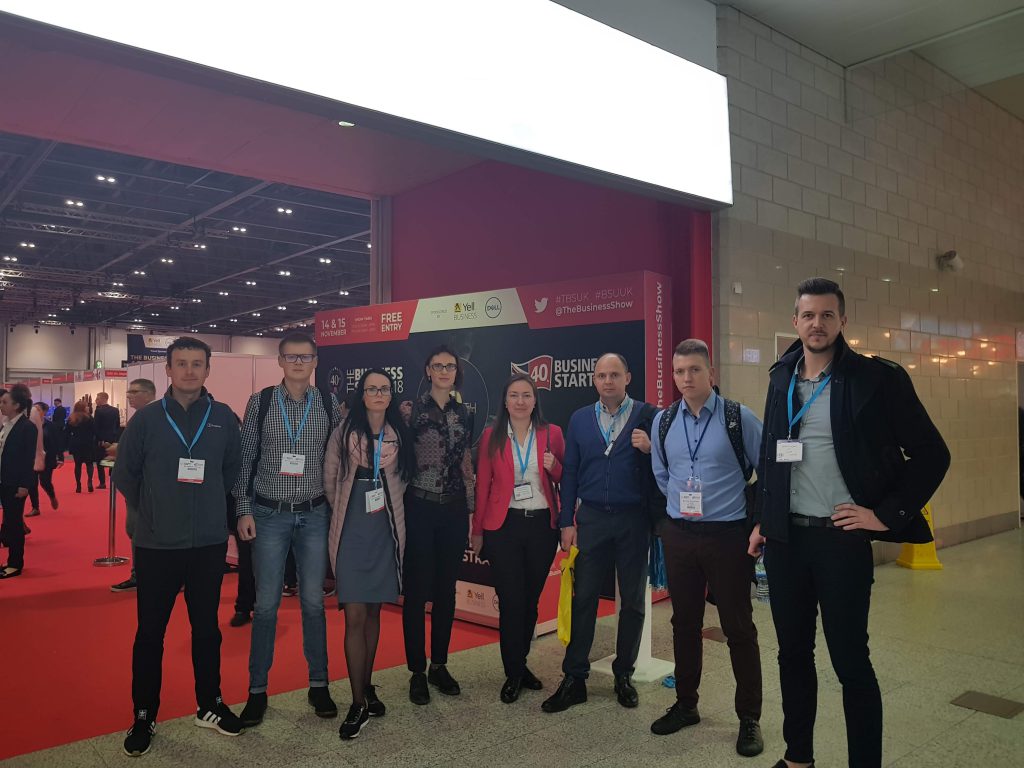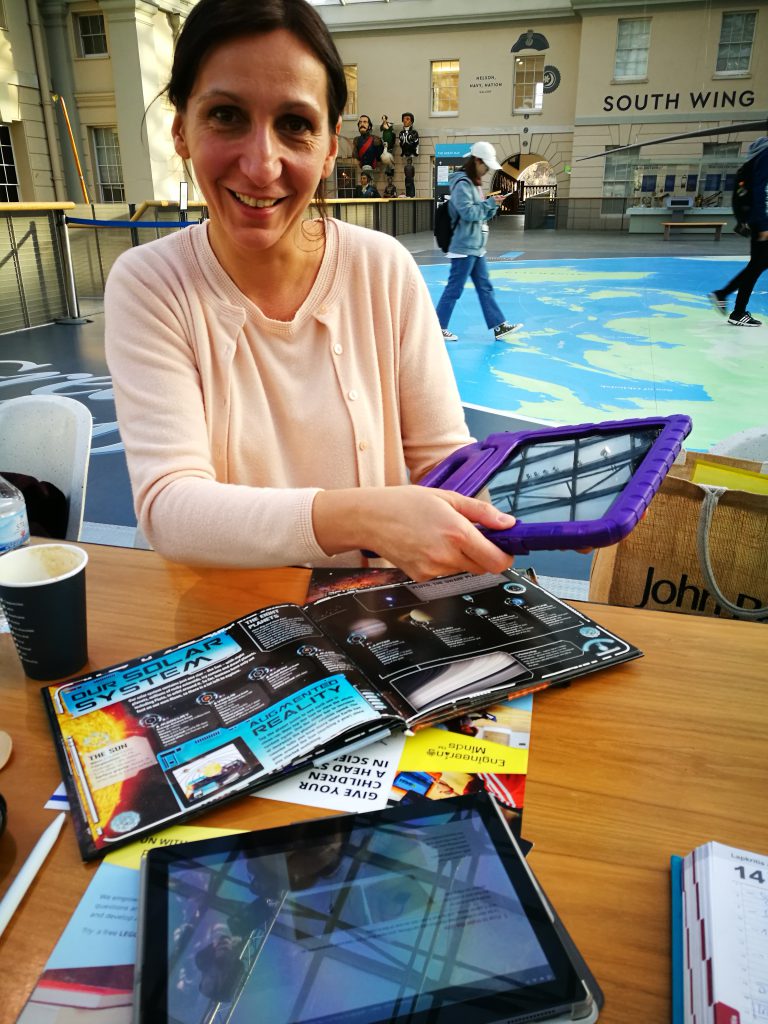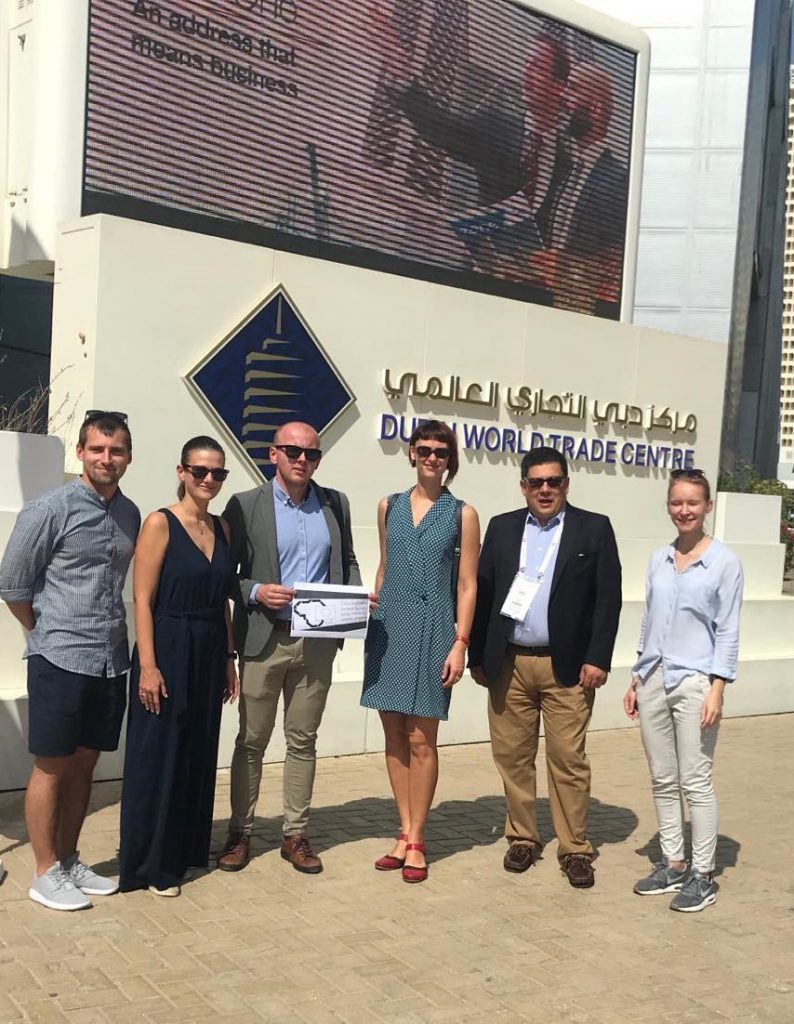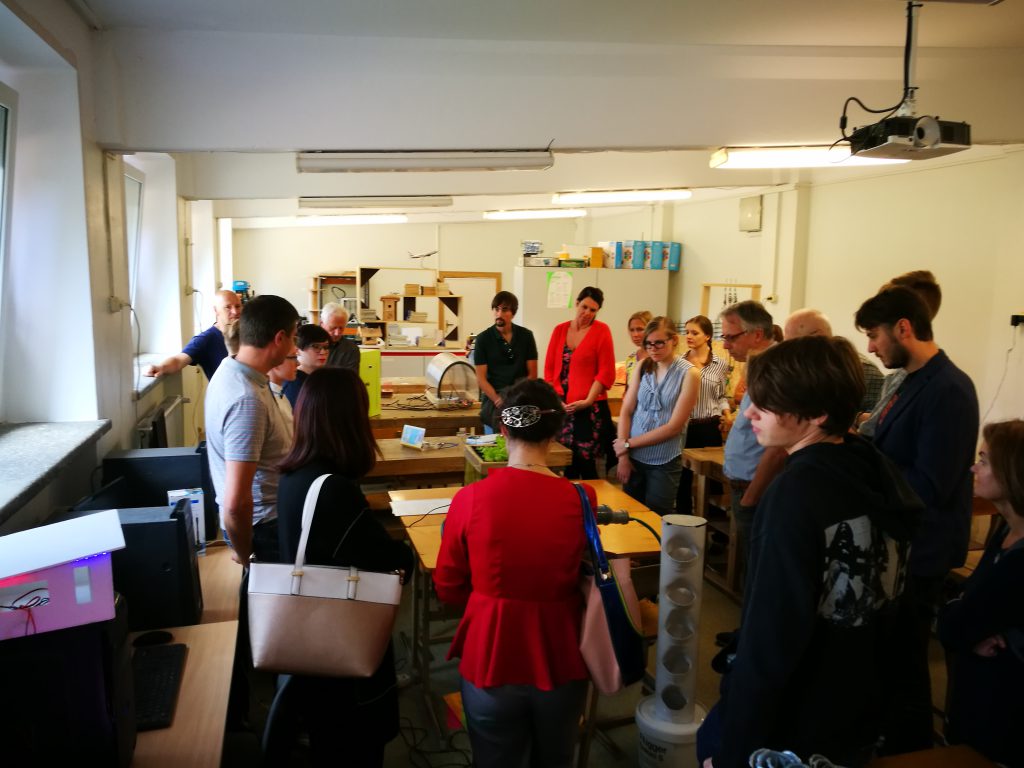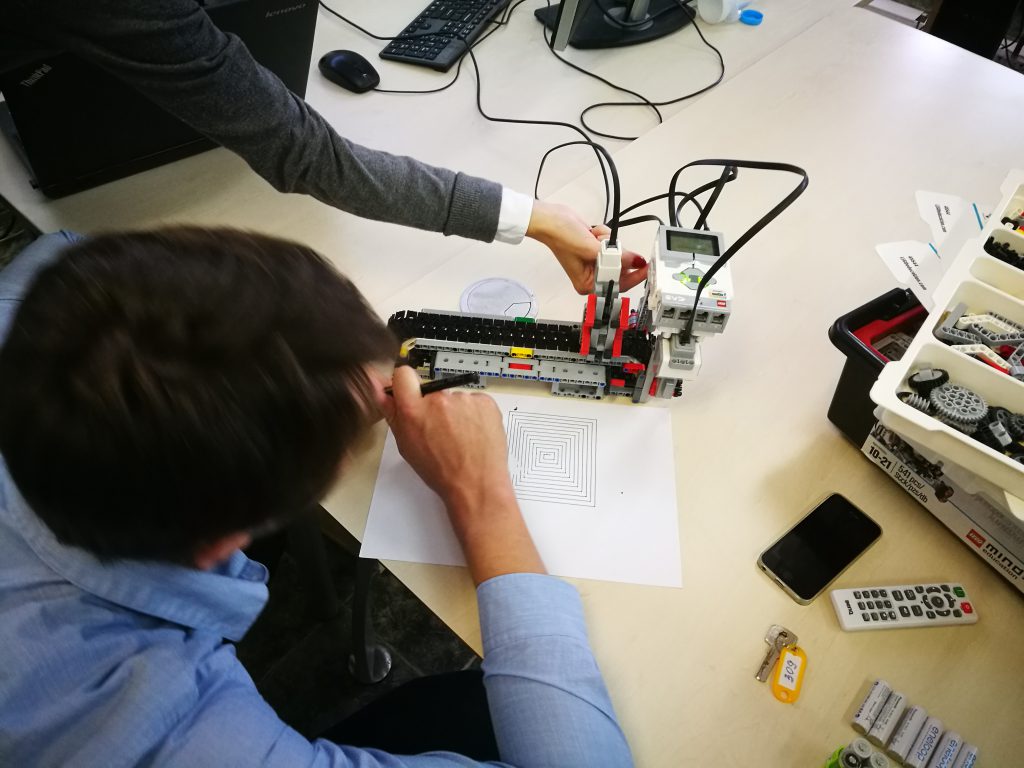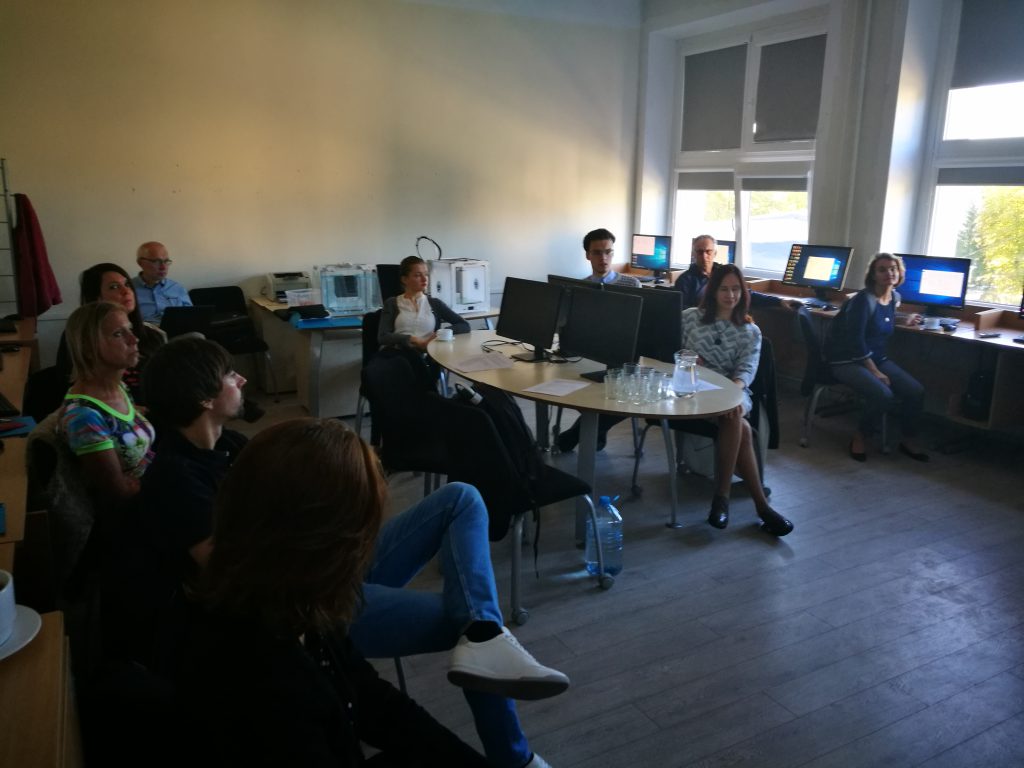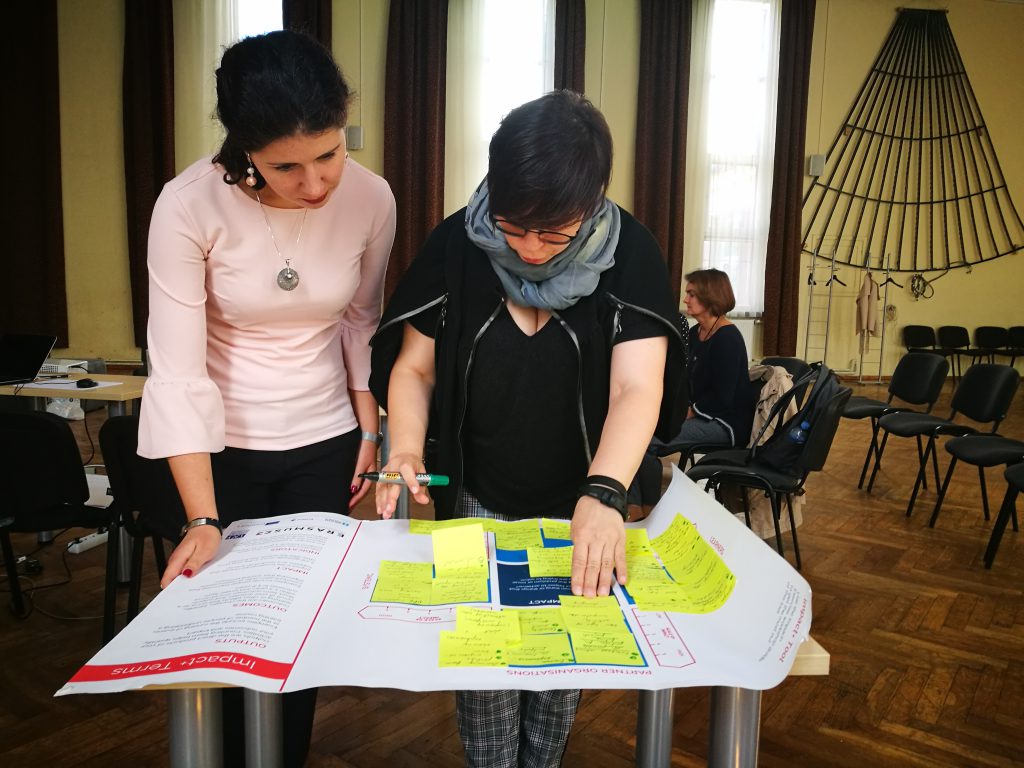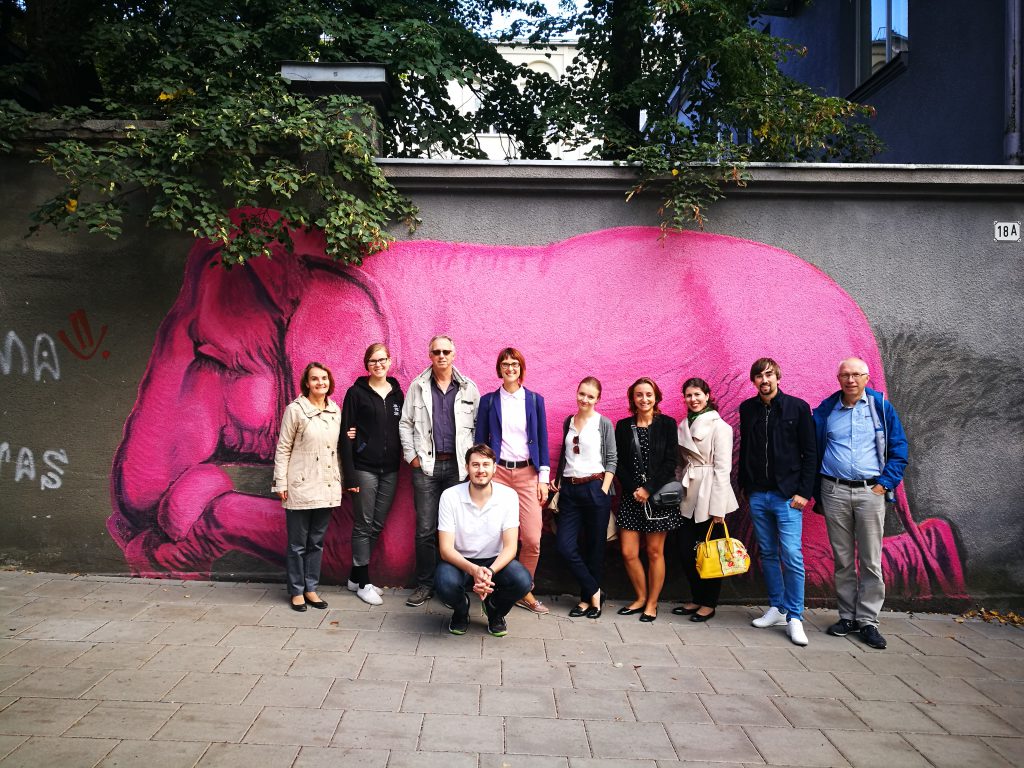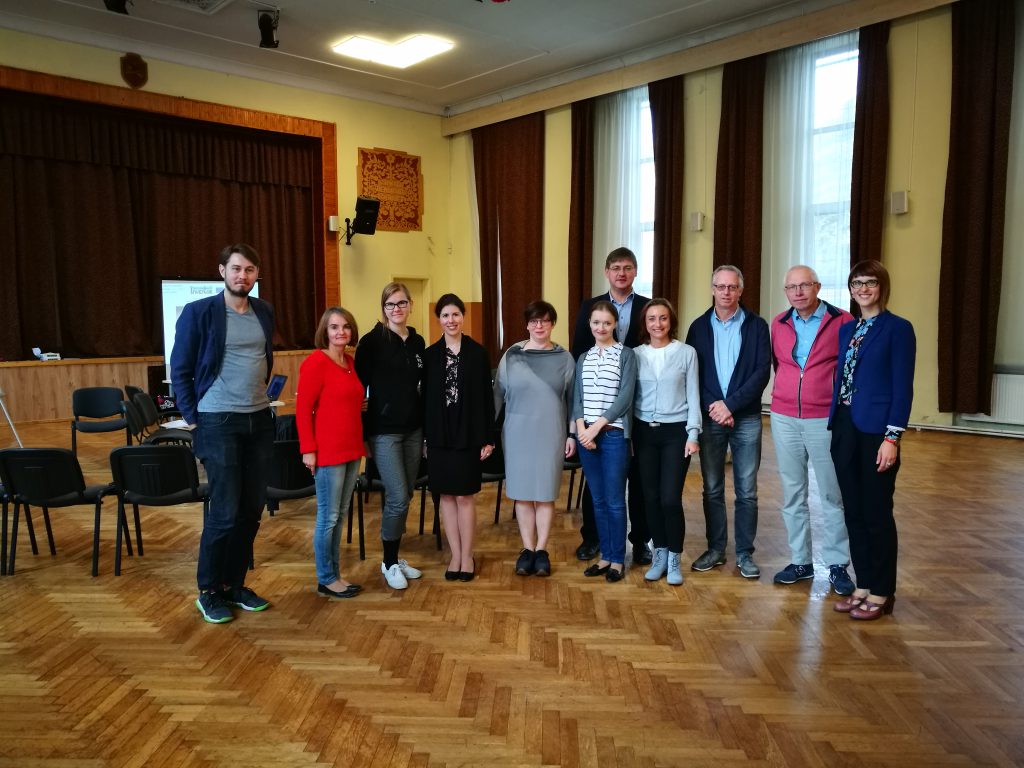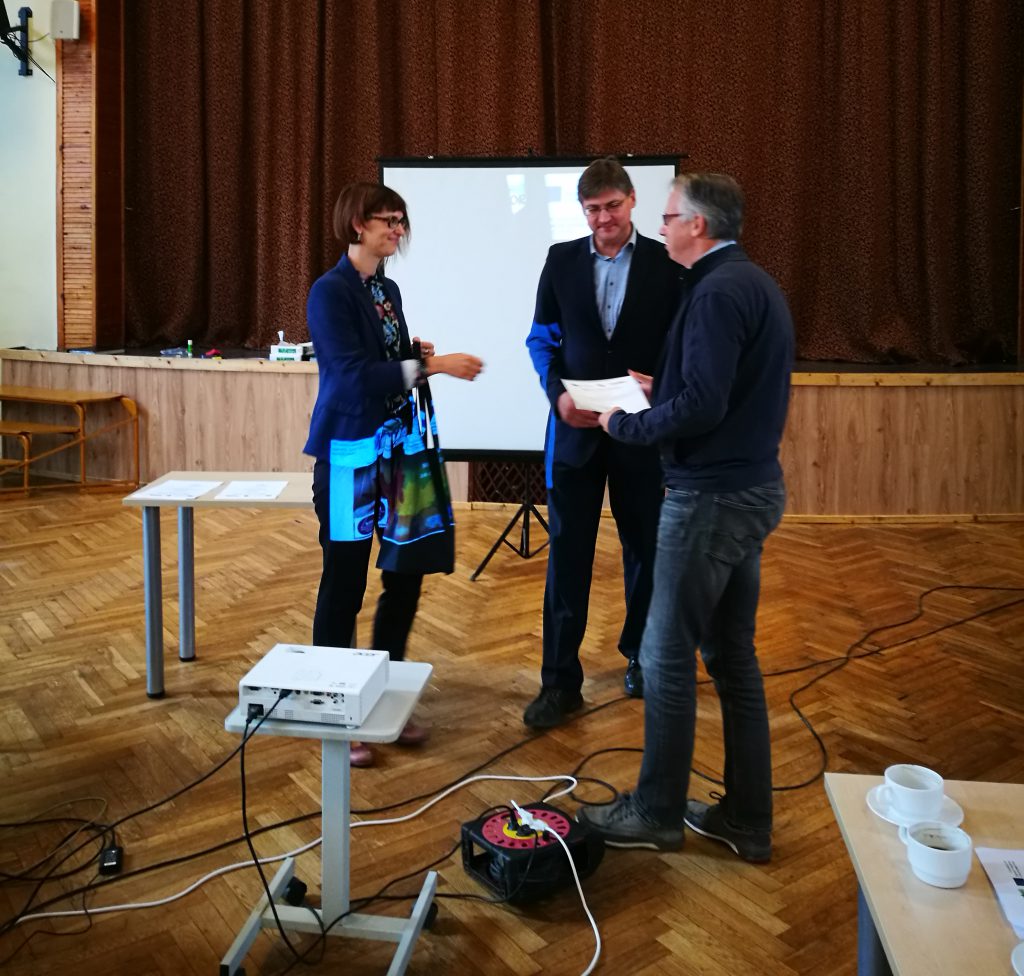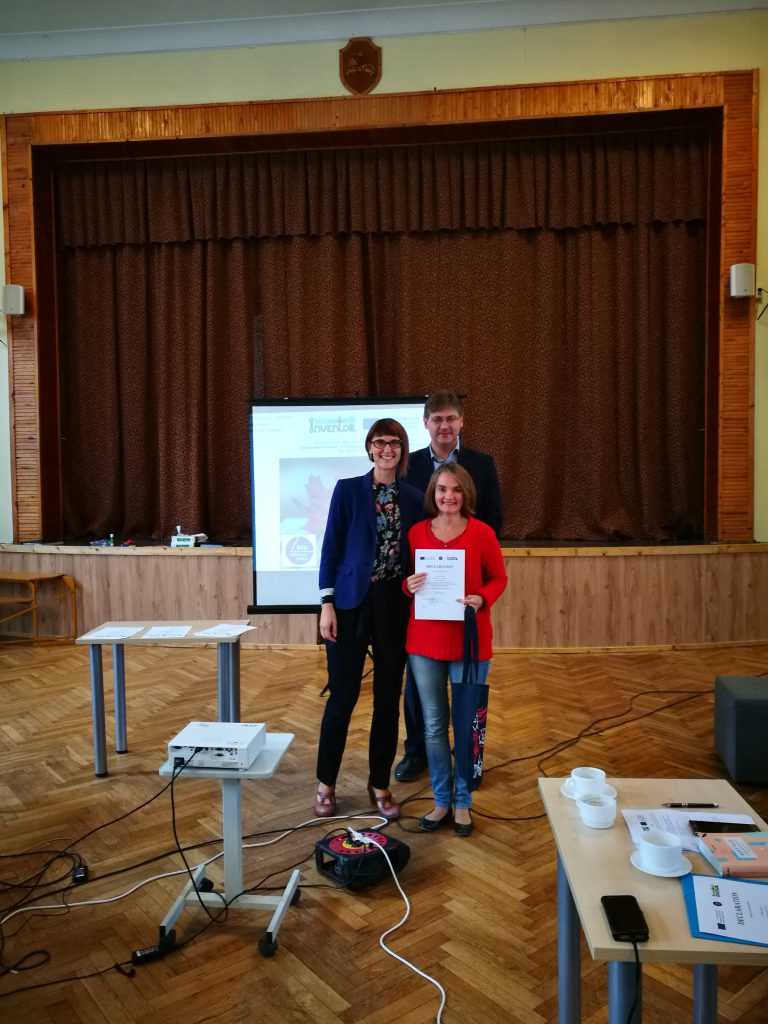The
multiplier event of Erasmus+ Strategic Partnerships project “How
to Raise an Inventor. Technology and Engineering Learning Materials
for Schools”, coordinated by the School of Robotics, took place
in Vilnius on November 23-24, 2018.
The
event was organized during the exhibition “School” at the
Litexpo Exhibition Center in order to disseminate information about
the project to as many teachers and pupils as possible. This decision
proved to be successful: during the two days of the exhibition,
children and representatives of schools from all over Lithuania
visited the stand of the School of Robotics.
The
booth focused on presenting the Erasmus + project’s intelligent
product. In our dealings with school leaders and teachers, we have
once again been convinced that the need for teaching materials to
complete the content of lessons and after-school activities is very
high. Many schools already have modern learning equipment, such as
micro:bit computers, 3D printers, and robotics kits. However, there
are no free and freely available teaching materials in Lithuanian, so
teachers have to become self-aware of the equipment, search the
Internet for information in English, create their own assignments,
sometimes lacking in time and knowledge and the equipment continues
to stand unused.
Interest
in the project’s teaching materials suggests that the training tool
will be useful both for beginner teachers and for those who are
already proficient but want to offer their students new exciting
topics and assignments.
Children
of all ages also took an active interest in the Robotics School
booth, observed the 3D printer in action and tested the breaking
machine. Children and parents were introduced to learning robotics in
their city or school.
The
project partners – KTU Engineering Lyceum – presented their own
module on solving technological problems and adapting them to
business needs. The module is of interest to teachers who wish to
combine the teaching of several STEM subjects in the educational
process.
The
second day of the exhibition hosted an open event for exhibitors
entitled “Solidworks Designing for 3D Printers and Demolition”
where Robotics School presented all 4 modules created during the
project, provided free access to training materials, and shared
experience in 3D modeling and printing.
Andrius
Jarmolajevas, a representative of Solidworks Support and Training
Center in Lithuania, presented the great news to Lithuanian schools –
3,500 free 3D licenses for Solidworks to be distributed to teachers
and students in the near future.
Vilma
Bačkiūtė, Head of the Pedagogical Department of the Ministry of
Education and Science of the Republic of Lithuania, welcomed the
initiative of the private business contributing to the technological
development in Lithuanian schools.
During
the event, about 70 teachers and several hundred children and parents
learned about the opportunity to teach and learn with the tools
developed by the School of Robotics and their partners.
The
project will continue until 2019. November 1.
Project grant agreement no. 2017-1-LT01-KA201-035284.
Below are some fotos from the event.


